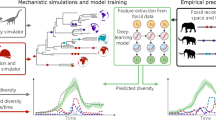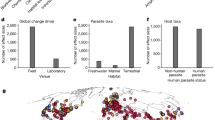Abstract
IT would be out of place in these pages to discuss Mr. Stanley's remarkable narrative of a remarkable expedition so far as the main purpose of that expedition is concerned. It is nearly four years since the interest in the position and fate of Emin Pasha reached its height in this country. The pages of NATURE and the columns of the daily press of the time will afford evidence of the universality and intensity of that interest, and of the reality of the belief that Emin and his people were in imminent danger of being exterminated by the Mahdists. Mr. Stanley insists on the ideal of Emin's conduct and character which was universally accepted at the time, as those of a hero who, in the face of danger and at the risk of death, loyally clung to his post and remained faithful to his duty and the people who regarded him as their leader and chief. As a man who had during his twelve years' sojourn in the Equatorial provinces made large contributions to science, the scientific world was naturally interested in his safety. Substantial evidence of what Emin has done for science may be seen in, our own Natural History Museum. To rescue and relieve the pioneer of science and of civilization was the one object of the Expedition with the leadership of which Mr. Stanley was entrusted. It is evident from his narrative that the object was ever before his eyes, and that all else was subordinate. Through dangers innumerable and sufferings that might have daunted all but the boldest and truest spirits, the purpose for which the Expedition was organized was accomplished. Emin and all of his people who cared to accompany him were rescued, and that just in time; for, according to the latest reports, the Mahdists are now swarming on the shores of Albert Nyanza. That Emin presented himself to Mr. Stanley in a light somewhat different from the ideal; that the Governor was reluctant to leave; that most of his people were disloyal and demoralized wretches who might have been left to the tender mercies of the Mahdi, with whom they could easily have made terms; that there were other features about the expedition that may leave room for criticism, do not affect the general result. Mr. Stanley has once more proved his supremacy as a man of action, as a leader whose single aim is to accomplish what he undertakes. Even were Emin as full of blemishes as he is represented in Mr. Stanley's narrative, no one need regret the Expedition sent to his relief; it has helped to keep alive the sentiments of chivalry and humanity in the midst of a civilization in danger of becoming too materialistic, and given opportunity for the exercise of those noble qualities which make us proud of our race.
This is a preview of subscription content, access via your institution
Access options
Subscribe to this journal
Receive 51 print issues and online access
$199.00 per year
only $3.90 per issue
Buy this article
- Purchase on Springer Link
- Instant access to full article PDF
Prices may be subject to local taxes which are calculated during checkout
Similar content being viewed by others
References
"In Darkest Africa: or the Quest, Rescue, and Retreat of Emin, Governor of Equatoria." By Henry M. Stanley . Two Vols. (London: Sampson Low and Co., 1890).
Rights and permissions
About this article
Cite this article
K., J. Darkest Africa1. Nature 42, 223–229 (1890). https://doi.org/10.1038/042223a0
Issue Date:
DOI: https://doi.org/10.1038/042223a0
Comments
By submitting a comment you agree to abide by our Terms and Community Guidelines. If you find something abusive or that does not comply with our terms or guidelines please flag it as inappropriate.



